Filter by
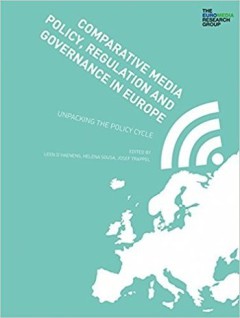
Comparative media policy, regulation and governance in Europe
Comparative Media Policy, Regulation and Governance in Europe - Unpacking the Policy Cycle represents the continuation and further development of a long tradition of media policy books, focusing on the development of media structures and media policy within Europe. It provides a comprehensive overview of the current European media in a period of more or less disruptive transformation. It maps t…
- Edition
- -
- ISBN/ISSN
- 9781783208869
- Collation
- -
- Series Title
- -
- Call Number
- 001.5 COM c
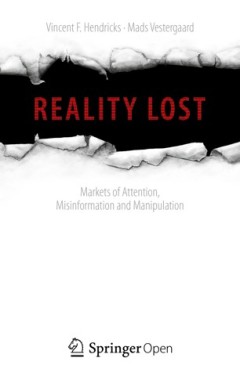
Reality lost : markets of attention, misinformation and manipulation
This open access book looks at how a democracy can devolve into a post-factual state. The media is being flooded by populist narratives, fake news, conspiracy theories and make-believe. Misinformation is turning into a challenge for all of us, whether politicians, journalists, or citizens. In the age of information, attention is a prime asset and may be converted into money, power, and influ…
- Edition
- -
- ISBN/ISSN
- 9783030008130
- Collation
- xxi, 144p. : ill.
- Series Title
- -
- Call Number
- 070.43 HEN r
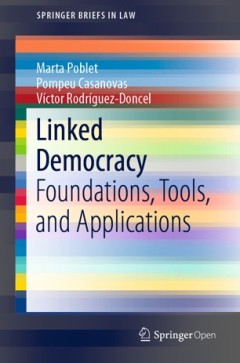
Linked democracy : foundations, tools, and applications
This open access book shows the factors linking information flow, social intelligence, rights management and modelling with epistemic democracy, offering licensed linked data along with information about the rights involved. This model of democracy for the web of data brings new challenges for the social organisation of knowledge, collective innovation, and the coordination of actions. Licensed…
- Edition
- -
- ISBN/ISSN
- 9783030133634
- Collation
- xv, 130p. : ill.
- Series Title
- -
- Call Number
- 343.0999 POB l

Network propaganda : manipulation, disinformation, and radicalization in Amer…
"Is social media destroying democracy? Are Russian propaganda or ""Fake news"" entrepreneurs on Facebook undermining our sense of a shared reality? A conventional wisdom has emerged since the election of Donald Trump in 2016 that new technologies and their manipulation by foreign actors played a decisive role in his victory and are responsible for the sense of a ""post-truth"" moment in which d…
- Edition
- -
- ISBN/ISSN
- 9780190923624
- Collation
- IX, 462 p.
- Series Title
- -
- Call Number
- 324.9730932 BEN n
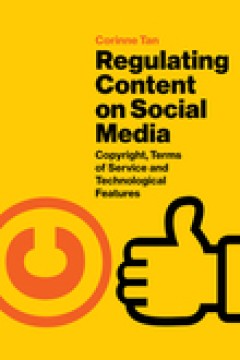
Regulating content on social media : copyright, terms of service and technolo…
How are users influenced by social media platforms when they generate content, and does this influence affect users’ compliance with copyright laws? These are pressing questions in today’s internet age, and Regulating Content on Social Media answers them by analysing how the behaviours of social media users are regulated from a copyright perspective. Corinne Tan, an internet governance spec…
- Edition
- -
- ISBN/ISSN
- 9781787351714
- Collation
- XI, 199 p.
- Series Title
- -
- Call Number
- 346.0482 TAN r

Achieving viability for public service media in challenging settings: a holis…
In the face of challenges posed by a shifting digital media landscape, an array of international bodies continue to endorse public service media (PSM) as an essential component of democratisation. Yet how can PSM achieve viability in settings where models of media independence and credibility are unfamiliar or rejected by political leaders? The answer lies in a holistic approach that is neither…
- Edition
- -
- ISBN/ISSN
- 9781912656516
- Collation
- iii, 29p.
- Series Title
- -
- Call Number
- 302.23094 DEA a
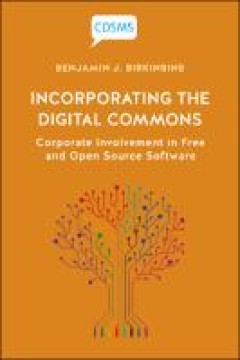
Incorporating the digital commons corporate involvement in free and open sour…
The concept of ‘the commons’ has been used as a framework to understand resources shared by a community rather than a private entity, and it has also inspired social movements working against the enclosure of public goods and resources. One such resource is free (libre) and open source software (FLOSS). FLOSS emerged as an alternative to proprietary software in the 1980s. However, both the …
- Edition
- -
- ISBN/ISSN
- 9781912656431
- Collation
- xiv, 143p.: ill.
- Series Title
- -
- Call Number
- 005.8 BIR i
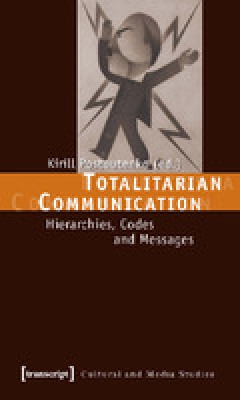
Totalitarian Communication: Hierarchies, Codes and Messages
By using history and theory of communication as an integrative methodological device, this book reaches out to those properties of totalitarian society which appear to be beyond the grasp of specific disciplines. Furthermore, this functional approach allows to extend the analysis of communicative practices commonly associated with fascist Italy, Nazi Germany and Soviet Union, to other locations…
- Edition
- -
- ISBN/ISSN
- 9783839413937
- Collation
- 316p.: ill.
- Series Title
- -
- Call Number
- 320.53 TOT t
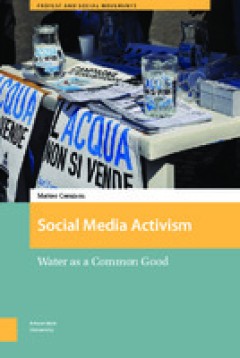
Social media activism: water as a common good
This book focuses on the referendums against water privatisation in Italy and explores how activists took to social media, ultimately convincing twenty-seven million citizens to vote. Investigating the relationship between social movements and internet-related activism during complex campaigns, this book examines how a technological evolution-the increased relevance of social media platforms-af…
- Edition
- -
- ISBN/ISSN
- 9789048529193
- Collation
- 245p.: ill.
- Series Title
- Protest and social movement
- Call Number
- 302.23 CER s
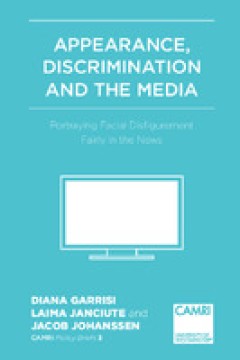
Appearance, discrimination and the media
"The portrayal of disfigurement in the UK media must change. This policy brief is based on recent research that found a general negative and sensationalised attitude towards disfigurement in the media. Disfigurement is a condition that can affect anyone at any time in life regardless their social or demographic background due to accidents or health conditions or be congenital. In the UK, one in…
- Edition
- -
- ISBN/ISSN
- 9781912656233
- Collation
- iv, 28p.: ill.
- Series Title
- -
- Call Number
- 305.908 GAR a
 Computer Science, Information & General Works
Computer Science, Information & General Works  Philosophy & Psychology
Philosophy & Psychology  Religion
Religion  Social Sciences
Social Sciences  Language
Language  Pure Science
Pure Science  Applied Sciences
Applied Sciences  Art & Recreation
Art & Recreation  Literature
Literature  History & Geography
History & Geography